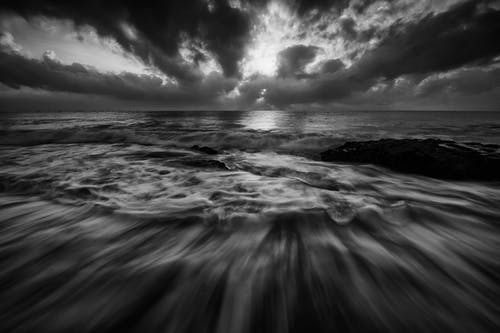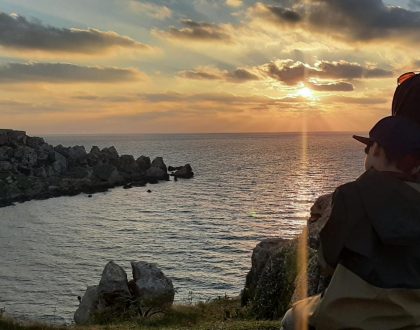Fear in Islam: The Soundness of the Intention (part 3)

by Abu Shama
Fear a Day that you will receive from Allah Almighty what you didn’t expect
We should fear a Day when all the records are laid open, and we find in our books things we didn’t expect. Maybe we were under the impression that most of our deeds and our worship are accepted and we find they were not. Should that be the case, these deeds will not be worth much if they were done without Ikhlaas. What do we do now?
“And there will appear to them from Allah Almighty that which they had not taken into account.” [Az-Zumar: 39:47]
“And the Book is placed [open] and you see the sinners fearful of that which is within it, the will say: ‘Woe to us! What sort of Book is this that leaves neither a small thing nor a big thing, but has recorded it with numbers!’” [Al-Kahf: 18:49]
The book of records show their motive, their intention, how they executed the commands of Allah Almighty or went against them, it records the number and the minute details. Everything will be put under the microscope and examined.
Aisha (may Allah be pleased with her) said: “Once the Prophet (peace be on him) said, “Whoever will be called to account (about his deeds on the Day of Resurrection) will surely be punished.” I said, “Doesn’t Allah Almighty say: “He surely will receive an easy reckoning.” (84.8) The Prophet (peace be on him) replied, “This means only the presentation of the accounts but whoever will be argued about his account, will certainly be ruined.”[Bukhari]
Many times, we start something with the right intention, but in the process of performing the action(s) we may have corrupted our intention – this spoils the deed. Perhaps, we started seeking knowledge for the sake of Allah Almighty and teaching it, and then we get praised and lauded by others, this shifts our intention a little and pollutes our efforts.
This is why we need to be vigilant and keep monitoring our intention. This is where fear comes in – it makes us take account and take stock of why and what we are doing. Connect this with the first thing Imam Muhasibbi mentioned – do not become reliant on the deeds.
Even the giants of this Deen were not immune from having their intention becoming corrupt. Imam Al-Ghazali was at his time one of the most celebrated scholars of the Islamic world. He was disseminating his knowledge with thousands of students learning from him. From the pulpit, he was defending the Deen from corruption, outside influences and preaching to the masses. He recalled:
“I examined my motives and realised that my work was not driven by things of God but instead I was motivated by the desire of influential position and public acclaim. I was certain I was on the brink of a crumbling bank of sand and imminent danger of hellfire unless I took to change my way of life.”[1]
On the surface Imam Ghazali was busy doing all the right things, but he was self-critical and vigilant, and he was monitoring how he was doing in the inside. He knew deed down his works may not be accepted, for they were done with the wrong intention. In his words, ‘I was certain I was on the brink of a crumbling bank of sand and imminent danger of hellfire’.
This fear that we may not find what we expect on That Day is leading to accountability.
“The unexamined life is not worth living” [Socrates]
Fear is the antidote to arrogance, it leads to humility and humbleness, and there is no sense of entitlement. It makes our worship better, that we do things with greater levels of excellence, that we purify and take account of our outward form and inward reality. This state of fear (of deficiency and shortcomings) and hope (accompanied with actions) are the right attitude needed for admittance into paradise.
Part 3 – Based on a talk by Shaykh Haytham Tamim in December 2018 on the Adab an Nufus by al Harith ibn Asad al Muhasibi (781-857)
[1] Al-Munqidh min Al-Dalal (Deliverance from Error) – Al-Ghazali – page 53
Recommended Posts

Can playing with children be an act of worship?
February 21, 2023

The connection between sincerity and the best of people – the story of Ka’b bin Malik
February 03, 2023

Ghazali on sincerity – transforming an inferior act into a superior act
September 23, 2022

